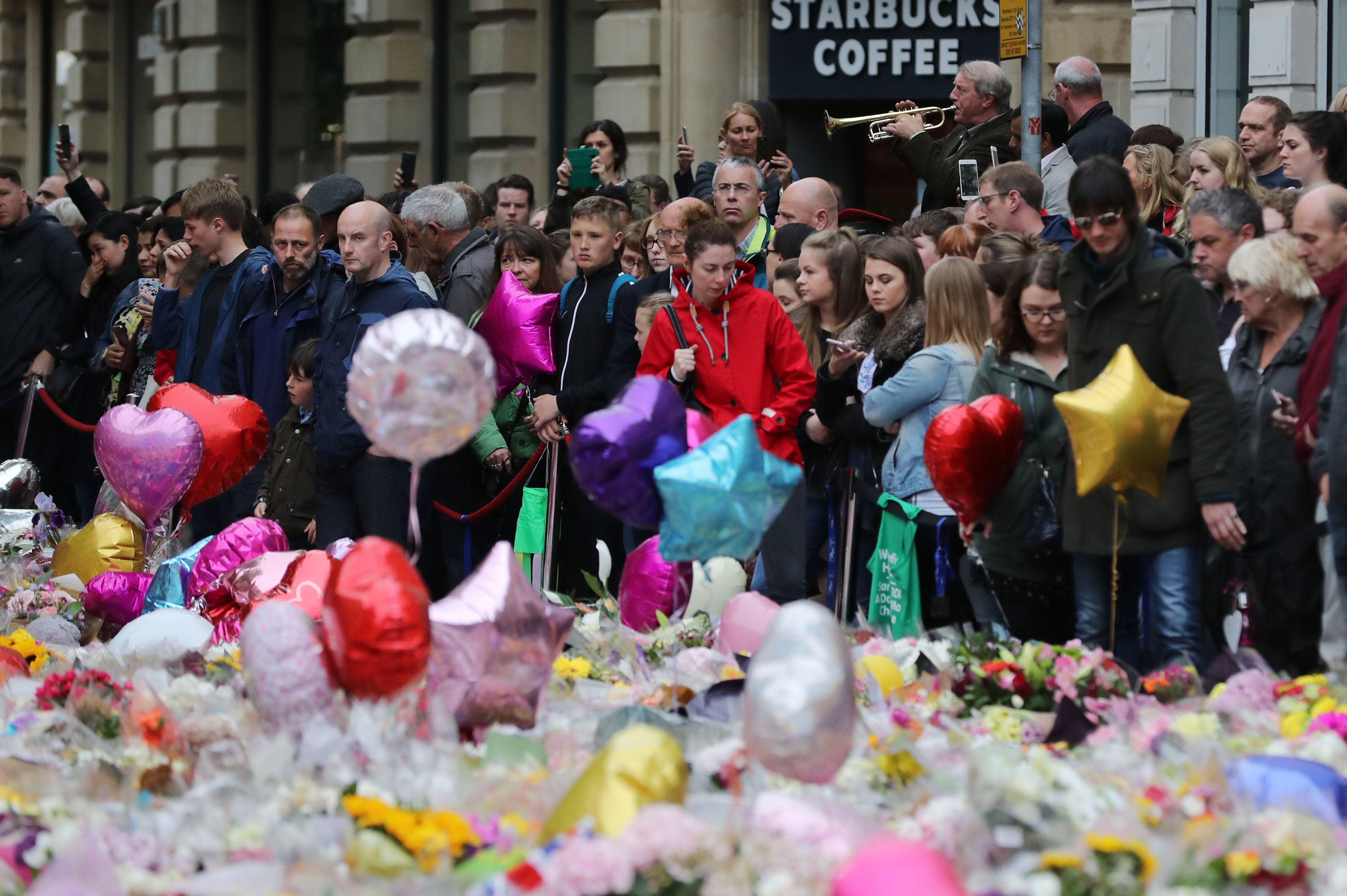I was 17 when the Manchester Arena bomb went off – it destroyed my teenage years
I had 30 shrapnel wounds that needed surgery. I consider myself one of the lucky ones


Your support helps us to tell the story
From reproductive rights to climate change to Big Tech, The Independent is on the ground when the story is developing. Whether it's investigating the financials of Elon Musk's pro-Trump PAC or producing our latest documentary, 'The A Word', which shines a light on the American women fighting for reproductive rights, we know how important it is to parse out the facts from the messaging.
At such a critical moment in US history, we need reporters on the ground. Your donation allows us to keep sending journalists to speak to both sides of the story.
The Independent is trusted by Americans across the entire political spectrum. And unlike many other quality news outlets, we choose not to lock Americans out of our reporting and analysis with paywalls. We believe quality journalism should be available to everyone, paid for by those who can afford it.
Your support makes all the difference.Five years ago today, my life changed in a split second. I was 17 and in the wrong place at the wrong time when a terrorist targeting young people like me detonated a bomb at the Manchester Arena.
I had spent that day getting excited about seeing Ariana Grande with my best mate, Millie. I spent that night, and another eight weeks afterwards, in intensive care. I had 30 shrapnel wounds that needed surgery. Later, I received intense physiotherapy to learn to stand, then eventually take a few steps, before I could go home.
It might sound odd, but I consider myself one of the lucky ones. Staying in hospital meant I automatically got access to a counsellor – someone on the ward I could talk to about what had happened to me. I saw her while I was there and then for a few months afterwards until I started to feel better about things.
So many of my mates at the Arena that night were not offered this sort of help. They went through the same awful experience, but because they walked away without physical injuries, no one helped with the invisible scars they carried. Or in too many cases, the help they received wasn’t helpful at all.
One friend was forced to “make friends” with a girl at school that she didn’t know. Because they had both been at the Arena, her school put them in a random room together to have sessions with a counsellor they had brought in. It was the opposite of what my friend needed. It was forced and uncomfortable, and completely put her off having therapy.
This kind of help was also only offered in the days and weeks after the attack. But the reality is that we were still in total shock at that time. What had happened to us didn’t sink for months afterwards. I thought I was fine when I left the hospital, but when my parents tried to take me on holiday a few months later I had a massive panic attack on the plane. This was something I’d never done before. My anxiety then went through the roof. It was a nightmare.
My mental health declined again at the end of the first lockdown. Being stuck inside with my thoughts was too much. I took antidepressants for a year, which helped a lot, and then decided I wanted to try counselling again. Cognitive behavioural therapy (CBT) really worked for me. I could talk about anything I wanted to without feeling judged, and the therapist gave me techniques for coping with my difficult thoughts.
Again, this is where I’ve been “lucky”. My physical injuries and the time I spent in hospital meant I received money from the We Love MCR fund for my physical recovery. Later, I was gifted money by the inquiry, which has paid for my private mental health care. I had hypnotherapy for my fear of flying, and then the CBT. Meanwhile, mates have had to face huge waiting lists to get psychological support and have often been offered just one type, which didn’t work for them.
To keep up to speed with all the latest opinions and comment, sign up to our free weekly Voices Dispatches newsletter by clicking here
Being part of the Manchester Survivors Choir, I’ve learned a lot about the support others have received since the attack. I can see so many ways society could do better by young survivors of terror. But at the moment it doesn’t seem like anyone is listening. It’s been five years since the bombing and nobody has asked us about the help we’ve received.
That’s why I’m working with eight other young Manchester Arena survivors to launch Bee The Difference this summer. It’s a research project that will ask anyone affected by the bombing, who was under 18 at the time, to tell us about the support they’ve had since and how helpful this has been.
The project is a partnership with Lancaster University and the National Emergencies Trust, a disaster response charity, which raises funds for emergency survivors. Dr Cath Hill, the lead researcher, is a Manchester survivor too, along with her son.
Bee The Difference will launch an online questionnaire once exam season is out of the way, and I really hope young people take part in it. Those who were injured. Those whose mental health has been affected. Those who have lost people they loved. By sharing their stories anonymously, they can help us to start a conversation that is long overdue. They can help make sure that all children affected by terror in the future will get the very best care.
You can find out more about Bee The Difference project here
Join our commenting forum
Join thought-provoking conversations, follow other Independent readers and see their replies
Comments